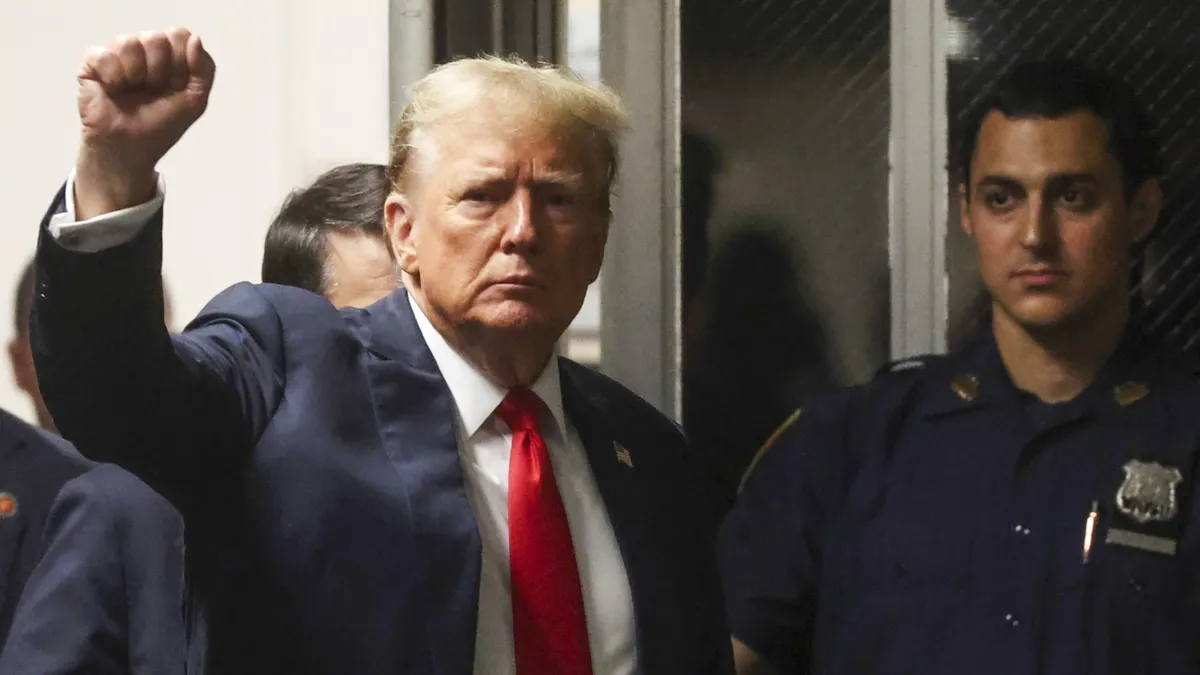
In a significant legal development, an appeal hearing for President Trump’s criminal conviction and sentencing is scheduled to take place in a U.S. court of appeals in Manhattan on Wednesday morning. This hearing represents the latest effort by the former president's legal team to overturn his conviction linked to the high-profile hush money case. Trump's legal representatives maintain that the case should be transferred to federal court, although Trump himself is not expected to attend the hearing alongside his attorneys.
Last year, President Trump was found guilty in the New York State Supreme Court on all 34 counts of falsifying business records. The charges stemmed from payments made to adult film star Stormy Daniels, intended to ensure her silence regarding an alleged sexual encounter that occurred prior to the 2016 presidential election. While Trump faced multiple civil and criminal cases ahead of last year’s election, this was the only criminal case to actually reach trial. This conviction marked a historic moment, making Trump the first sitting president to also be a convicted felon.
Trump received his sentence just ten days before he was set to be inaugurated for a second term. He was granted an unconditional discharge, which means he will not face any fines, prison time, or additional penalties; however, the conviction will remain a part of his criminal record. During his sentencing in January, Trump expressed via video, “I was treated very, very unfairly,” continuing to assert his innocence despite the jury's decision. He has vowed to appeal the conviction.
Legal scholars consulted by NPR have noted that this particular appeal is grounded in a somewhat outdated legal framework and is likely to face challenges. Jed Shugerman, a professor at Boston University School of Law, remarked that this situation illustrates Trump's legal team’s determination to utilize every available option to reverse the conviction. He noted, “Trump is exhausting every possible argument he can make,” but added that even if this appeal does not succeed, it does not preclude the potential success of future appeals. “He has plenty of strong, substantive arguments,” Shugerman stated, emphasizing that these arguments should ideally be addressed within state courts.
Trump's attorneys are primarily arguing that the appeal should be relocated to federal court because the prosecution relied on evidence tied to Trump's actions as president. In a court filing from early March, they asserted that the prosecution had centered its case on testimonies related to Trump's official duties during his first term. The filing claimed, “Trial thus made eminently clear that President Trump’s appeal of his conviction belongs in federal court.” Supporting this assertion, the U.S. Department of Justice submitted an amicus brief backing Trump last month.
Conversely, the Manhattan District Attorney's office contends that the case cannot be moved to federal court post-sentencing. Trump's lawyers argue that the legal landscape surrounding this issue is ambiguous. Their case hinges on the Federal Officer Removal Statute, a law that dates back to the early 19th century, designed to allow federal officials charged with crimes in state courts to transfer their cases to federal courts, thereby ensuring a perceived neutral venue for their trials.
Shugerman described this legal maneuver as akin to a “Get Out of State Court Free” card, usable only in very specific circumstances. Trump's legal team has previously attempted to invoke this statute twice, but both attempts were denied by a district court judge who ruled that the crime at the heart of the case occurred prior to Trump assuming federal office, thus making the statute inapplicable. The payments made to Stormy Daniels occurred before Trump was in office, complicating his legal team's argument.
Stephen Vladeck, a professor at Georgetown University Law Center, elaborated on the potential ramifications of this legal strategy if it were to succeed. “It’s not just about Trump,” he explained, noting that expanding the applicability of the Federal Officer Removal Statute could significantly alter the dynamics of how cases involving federal officials are processed, potentially undermining the role of state courts within the judicial system.
As the hearing approaches, it will take place before a three-judge panel at the Second Circuit Court of Appeals, with two judges appointed by former President Barack Obama and one by former President Joe Biden. The outcome of this appeal could have lasting effects not only on Trump’s legal battles but also on the broader landscape of the legal system concerning federal and state jurisdiction.